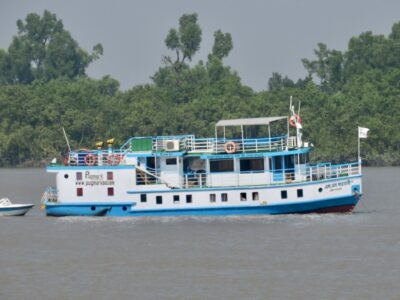The Practicum in Innovative Sustainability Leadership (SUMA K4310), a course added to the M.S. in Sustainability Management curriculum in the spring of 2014, takes as its starting point that sustainability is often about changing how organizations work. The course provides a forum where some of the world’s leading practitioners teach students how to make these changes. In the spring of 2015, the guest speakers will represent cities, large corporations, and local and national environmental organizations. These practitioners will be specialists in a variety of areas, including energy, management consulting, banking and transportation, but they will speak less about what they do, and more about how they do it. By the end of the course, students will have identified a set of management strategies for being effective sustainability managers.
“For students, this course is an invaluable opportunity to learn from the best sustainability practitioners about how to be successful in the field,” says George Sarrinikolaou of The Earth Institute, who is teaching the course. He, too, is a sustainability practitioner, with more than a dozen years of experience working on urban sustainability issues.
The roster of practitioners includes leaders in urban sustainability, such as Beth Strommen, Baltimore’s director of sustainability, and Steve Nicholas, the former sustainability director of Seattle. The list also includes practitioners who are innovating in their respective fields by integrating sustainability in sectors such as banking (Camilla Seth, JPMorgan Chase), energy finance (Curtis Probst, Rocky Mountain Institute), and sustainability metrics (Hilari Varnadore, STAR Community Index). This semester, the course is also hosting several practitioners who will delve into the integration of sustainability in business, each from a different perspective. These speakers include innovators of the field such as Bill Barry of Macmillan, Stefan Knupfer of McKinsey & Co. and Vance Merolla of Colgate-Palmolive.

Each class meeting will feature a different guest speaker, for a total of 13 throughout the semester. Each session will consist of a lecture and question and answer period in the first hour, and a discussion of the lecture in the second hour. The class will meet on Wednesday evenings from 6:10 p.m.–8 p.m. The weekly readings are geared toward giving students insights into management strategies for change, as well as information about the issues that the guest speakers confront in their work.
The course is open to graduate and undergraduate students, and there are 3-point and 1-point options. Students in the Sustainability Management program may use the course to satisfy any of three areas of study: “Integrative Courses in Sustainability Management,” “Public Policy Environment of Sustainability Management” or “General and Financial Management.”
The discussion topics covered and the practitioners who will address these topics are as follows:
- Introduction to the Course and to the Profession of Sustainability Management: Steve Nicholas, vice president for U.S. programs, Institute for Sustainable Communities, and former director of the City of Seattle Office of Sustainability & Environment
- Business Strategies for Sustainability: Bill Barry, Macmillan
- On the Way to the New Climate Economy: Stefan Knupfer, senior partner, McKinsey & Co., Inc.
- Financing the Transition to a Green Economy: Curtis Probst, managing director, Rocky Mountain Institute
- The Sustainability/Profitability Connection: Vance A. Merolla, director of environmental sustainability, Global Supply Chain, Colgate-Palmolive Co.
- Leadership and Urban Sustainability: Beth Strommen, director, Baltimore Office of Sustainability
- Banks and Sustainable Finance: Camilla Seth, executive director, Office of Environmental Affairs
- City Politics and Sustainability: Katherine Gajewski, director of sustainability, City of Philadelphia
- Standards and Metrics for Sustainability Performance: Hilari Varnadore, executive director, STAR Communities
- The Bicycle, Activism and Sustainable Cities: Paul Steely White, executive director, Transportation Alternatives
- Protecting New York’s Water: Paul Gallay, president and Hudson riverkeeper, Riverkeeper
- Market Innovation: Yerina Mugica, associate director, CMI, Center for Market Innovation Program
- Building Climate Resilient Communities: Susanne DesRoches, assistant chief of resilience and sustainability, Port Authority of New York and New Jersey (invited)



